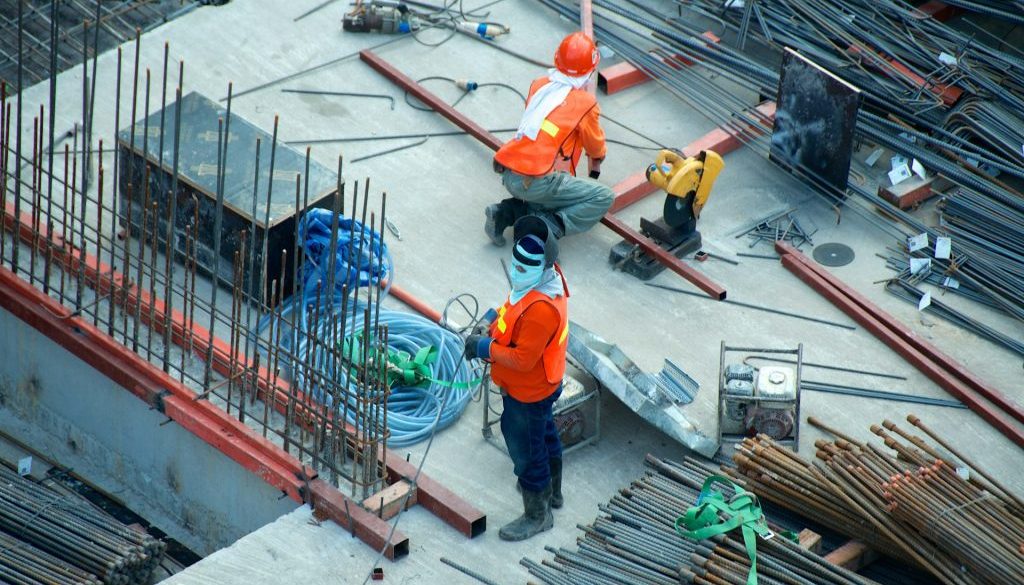In recent years, the construction industry has sought to embrace sustainable and environmentally friendly practices in response to growing awareness of the environmental impact of construction and the depletion of natural resources. One key area that has seen significant advancement is the increasing usage of sustainable aggregates in construction projects. Sustainable aggregates, such as recycled and secondary aggregates, serve as eco-friendly alternatives to traditional aggregates like sand, gravel, and stone and are derived from waste materials or by-products from other industries.
As we strive for a greener future, understanding the potential benefits and applications of sustainable aggregates can help construction professionals make informed choices that contribute to reducing the sector’s environmental footprint. In this in-depth guide, we will provide an overview of the various types of sustainable aggregates available, explaining their origins, characteristics, and potential applications in construction. We will also discuss the environmental benefits associated with using these materials, such as reduced waste generation, conservation of natural resources, and the potential for lower carbon emissions.
Join us as we delve into the world of sustainable aggregates, equipping you with essential knowledge to make informed decisions about incorporating eco-friendly materials into your construction projects. By exploring the ever-evolving landscape of sustainable alternatives in the construction industry, we can collaboratively work towards a more sustainable and environmentally-conscious future.
1. Types of Sustainable Aggregates
Sustainable aggregates can be classified into two main categories: recycled aggregates and secondary aggregates. Let’s explore each type in more detail.
- Recycled Aggregates: These aggregates are produced from construction and demolition waste, such as crushed concrete, bricks, and asphalt. The reclamation process involves sorting, crushing, and sieving waste materials to create new aggregates in various grades and sizes suitable for construction applications.
- Secondary Aggregates: Derived from by-products or waste materials generated by other industries, secondary aggregates include incinerator bottom ash, glass sand, blast furnace slag, and fly ash from the power industry. These underused resources can be repurposed as aggregates within the construction sector, providing additional value and reducing the need for virgin materials.
2. Applications of Sustainable Aggregates in Construction
Sustainable aggregates can be used as alternatives to traditional aggregates in a wide range of construction applications, including:
- Substructures: Recycled aggregates, such as crushed concrete, can be used as a granular fill material in the construction of substructures like foundations, providing a robust and stable base for buildings.
- Road construction: Both recycled and secondary aggregates can be employed in road construction as sub-base materials or as constituents in asphalt and concrete production.
- Drainage systems: Sustainable aggregates, like glass sand, can be used in the creation of permeable pavements or drainage layers, helping to manage stormwater effectively and prevent flooding.
- Concrete production: Incorporating recycled and secondary aggregates as part of the concrete mix can help to reduce the reliance on natural resources, resulting in a more sustainable and eco-friendly concrete product.
3. Environmental Benefits of Sustainable Aggregates
Using sustainable aggregates in construction offers numerous environmental advantages over traditional sources, such as:
- Conservation of natural resources: The use of recycled and secondary aggregates helps to reduce the extraction of finite natural resources like sand, gravel, and stone, thereby preserving these valuable materials for future generations.
- Waste reduction: By repurposing waste products from construction and other industries as sustainable aggregates, waste generation is significantly reduced, and the demand for landfill space is decreased.
- Lower carbon emissions: The production and transportation of virgin aggregates can generate considerable carbon emissions, particularly when sourced from distant locations. Using locally available recycled and secondary aggregates can significantly reduce carbon emissions.
- Energy savings: The production and processing of sustainable aggregates generally require less energy than their virgin counterparts, resulting in overall energy savings and contributing to a greener construction industry.
4. Challenges and Considerations in Using Sustainable Aggregates
While sustainable aggregates offer numerous environmental benefits, some potential challenges and considerations should be taken into account:
- Quality and consistency: The quality and consistency of sustainable aggregates can vary depending on the source materials and processing methods. To ensure their suitability for specific construction applications, it is essential to adhere to relevant testing and quality standards.
- Availability: The availability of suitable sustainable aggregates can depend on local market conditions and the presence of appropriate recycling or processing facilities. In some cases, this may necessitate transporting materials over longer distances, potentially negating some of their environmental benefits.
- Regulatory compliance: The use of sustainable aggregates in construction projects may require adherence to specific regulations or guidelines, so it is important to understand the relevant requirements and ensure compliance at all times.
Conclusion
Embracing sustainable aggregates in construction is an important step towards a greener and more environmentally-conscious industry. By understanding the potential benefits and applications of these materials and overcoming potential challenges, construction professionals can reduce the sector’s environmental footprint, conserve natural resources, and promote a sustainable future.
If you require sustainable aggregates for your construction project or need assistance with skips for environmentally responsible waste disposal, get in touch with Enviro Skip Hire today. Our team of dedicated experts is committed to providing exceptional service and focusing on environmentally friendly practices, ensuring that your project is successful and sustainable.




